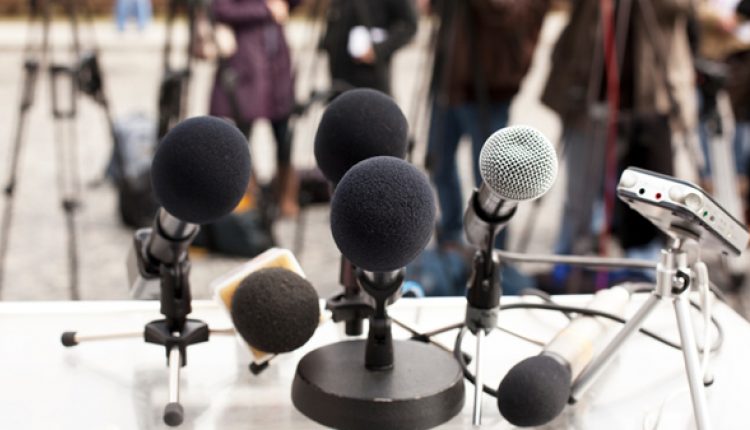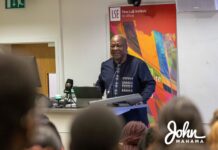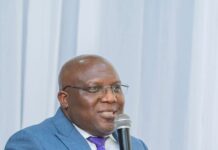
Going down memory lane, World Press Freedom Day (WPFD) 2016, observed in the Finnish capital, Helsinki, was addressed by the then President of Ghana, John Dramani Mahama, through a paper he submitted as President of Ghana and Co-chair of the Advocacy Group of the United Nations Sustainable Development Goals (UNSDG).
Fortuitously, Ghana won the bid to host WPFD 2018, held in Accra, this past May 3 and also addressed by current Ghanaian Head of State, Nana Akufo-Addo.
Ghana won this bid against a worthy “opponent”, Namibia, long regarded as a bastion of the freedom of expression. It was the Windhoek Declaration of some 27 years ago which after all saw the establishment of WPFD as an international event every May.
President Mahama’s paper stated, inter alia:“Twenty-six years ago, a new nation was born and with it, new hopes and visions. Within one year of its liberation, Namibia hosted in its capital city of Windhoek a major world changing event which history has recorded as the Windhoek Declaration. The Declaration spoke eloquently about the vital role a free, independent, pluralistic press plays in human development and progress…World Press Freedom Day (WPFD) came into being, and 25 years on, has grown to encompass the wider freedoms of expression and access to information. A globally observed event, World Press Freedom Day is a platform to celebrate advances in press freedom, including the defence of media professionals from attacks on their independence, and more sobering, the day commemorates those who have lost their lives in an attempt to preserve our fundamental right to seek and receive information.” Not just information but facts.
For two Ghanaian heads of state to have addressed WPFD within the space of two years must mean that Ghana had been doing something right in the sphere of the freedom of expression. Indeed, the Ghanaian Constitution in Chapter 5, Article 21(a), spells out clearly the inviolability of the freedom of expression in Ghana. But here is the reality check.
Rather disquietingly, the culture of silence of the 1980s is being replaced by the culture of intolerance, arrogance and impunity currently reigning in Ghana.
In a statement, “Rise Up Against Tyranny, Intimidation” The Media Foundation for West Africa (MFWA) states that:
“Recent incidents of assault against journalists in Ghana paint a dire picture of the safety of journalists’ situation in the country and the trend must be fought back with all the power at the media’s disposal. Particularly, the MFWA finds the current spate of physical attacks against Ghanaian journalists by both state and non-state actors very alarming. On April 10, 2018, we reported that 17 journalists had been physically assaulted in the country over the previous 15 months. The report followed police brutalities against Latif Idris, a reporter with Joy News, who was covering an event at the headquarters of the Ghana Police Service in Accra.” The statement continues: “The MFWA therefore views with dismay the incident of May 4, 2018, in which one Hajia Fati a known NPP activist assaulted Ohemaa Sakyiwaa, a reporter of Accra-based Adom FM. This incident is especially outrageous and embarrassing as it happened just a day after Ghana hosted the world to observe the World Press Freedom Day and at the headquarters of the ruling New Patriotic Party (NPP).”
It is this kind of ignorance, compounded by arrogance, that constitutes the greatest threat to democracy. Other dangers to our democracy keep rearing up:
- Vigilantism on the rise. A number of violent activities have been recorded, but one example will suffice here: A court of law is attacked by party hacks and suspects allowed to abscond. The government blocks prosecution. What did the press say and who cared?
- A High Commissioner-designate violates all that is sacred in diplomacy by publicly declaring his bias in favour of NPP supporters on his tour of duty. Instead of being dropped, a half-hearted apology is all that is extracted from him to be confirmed as our envoy to the power house of the SADC region. What did the press say and who cared?
- A party hack openly brings our armed forces into disrepute by verbally attacking a senior military officer, who was performing his legitimate orders in explaining the military’s position on a national issue. The Commander-in-Chief says nothing putting party before our armed forces. What did the press say and who cared?
- On the issue of American forces in Ghana, the head of state takes to a national address and instead of rallying us to a national consensus, rather talks down on us calling those who do not agree, hypocrites and anti-American! What did the press say and who cared?
It is a tall list, but to think that an onion seller should not have a voice in today’s Ghana, caps it all. As the media defends one of its own, it should be mindful of and not forget the fact that, the UN Declaration, SDG 16 and our own Constitution, speak for us all, including onion sellers. Their defence should therefore go beyond fighting for only one of their own to cover the rights of all citizens.
From a Correspondent | Accra, May 10 2018




